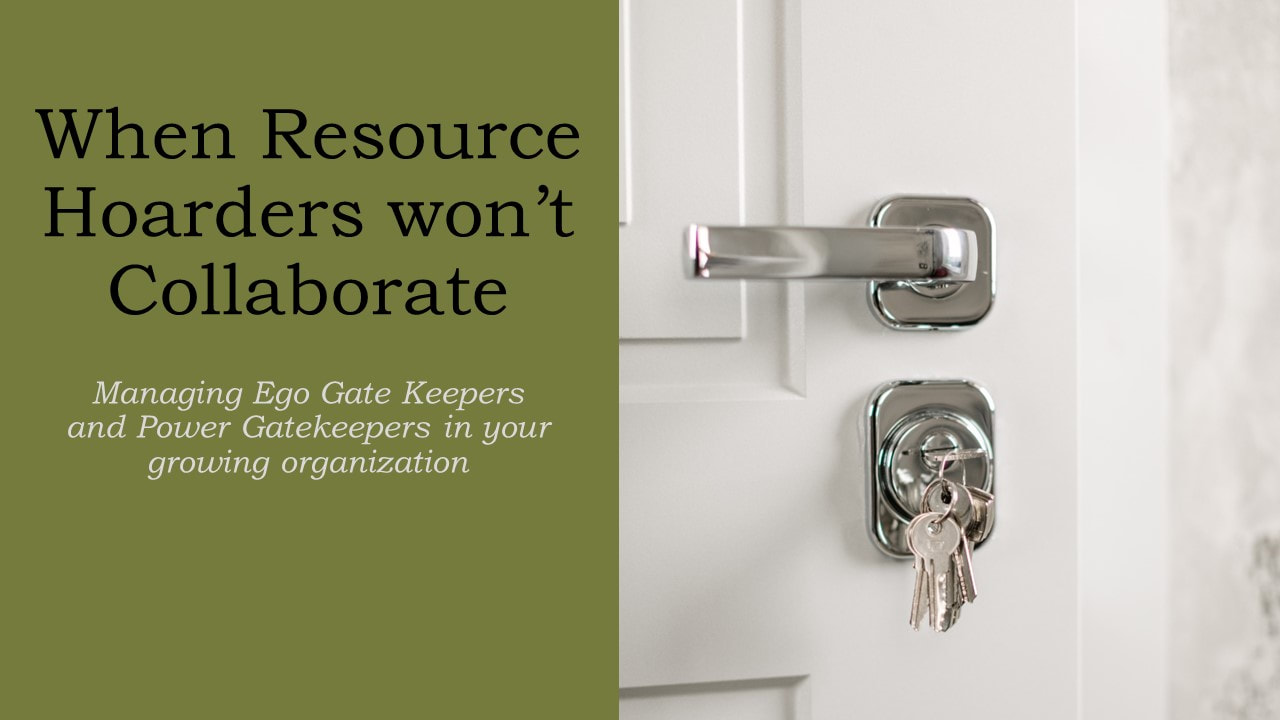 Can Resource-Hoarders Thrive in a Collaborative Work Environment?
To answer this question, you must first understand what drives their hoarding behavior. Resource-sharing increases productivity and collaboration. Resources such as access to physical or digital space, information, support teams, and cash make collaborative work environments run smoothly. However, some prefer to guard rather than share resources others need to perform. Those who guard resources often want something in exchange for providing access to the resource. They use the resource as currency, creating barriers to access and positioning themselves as gatekeepers. This gatekeeper mentality can clog the wheels of even the smoothest business systems. Understanding the big picture is the key to building a collaborative work environment. In Collaborative Leadership, Oxford Leadership Fellow Thomas J. Hurley notes that shifting from a “me” mindset to a “we” mindset is essential for collaborative work environments. But not all gatekeepers are open to making such a shift. I worked with one multinational corporation that experienced a weekly loss of $40,000 in short-term investment returns so that one field office could save $4,000. Let me explain: At the close of business each day, every field office forwarded its daily cash to the short-term investment group at corporate headquarters. While no single office held enough cash overnight to warrant investing the funds, the dividends were significant when the company pooled those funds to invest. One day, the short-term investment group noticed that one of the field offices was forwarding significantly less money to the pool. In response to their inquiries, the field office manager proudly explained that he had made the office’s financial operations more efficient, realizing significant savings of $4,000 per week. But the $4,000 saved cost the company more than $40,000 in short-term investment returns each week. To rectify the situation, the field office manager would have to dismantle the work he had just completed. How to best approach him with this request depends on whether he is an Ego Gatekeeper or a Power Gatekeeper. Managing Ego Gatekeepers Ego Gatekeepers, as the name implies, focus on building their ego. They want to know that others see them as important, valuable contributors to the organization. They like to think of themselves as indispensable to the organization's success and seek public approval. The most effective way to approach an Ego Gatekeeper with a request is to:
Managing Power Gatekeepers Power Gatekeepers focus on building and preserving power. They want power over their role and as much power over others as possible. The organization's success does not concern them. The most effective way to approach a Power Gatekeeper with a request is to:
As organizations grow, the need for collaborative work and resource-sharing grows. Teams that focus on the “we” are essential for long-term success because they share resources to best serve the organization. Team members who cannot move past the “me” mindset, hoarding resources as currency, quickly become detrimental to the organization. Managing Ego Gatekeepers and Power Gatekeepers requires deliberate attention to promote collaboration. It is often easier to shift Ego Gatekeepers to a “we” mindset, thus improving collaboration and resource-sharing. But when the “me” focus of your Power Gatekeepers disrupts your “we” environment, encouraging them to leave for another organization is often best for everyone.
0 Comments
|
Megan Mayer
|

 RSS Feed
RSS Feed